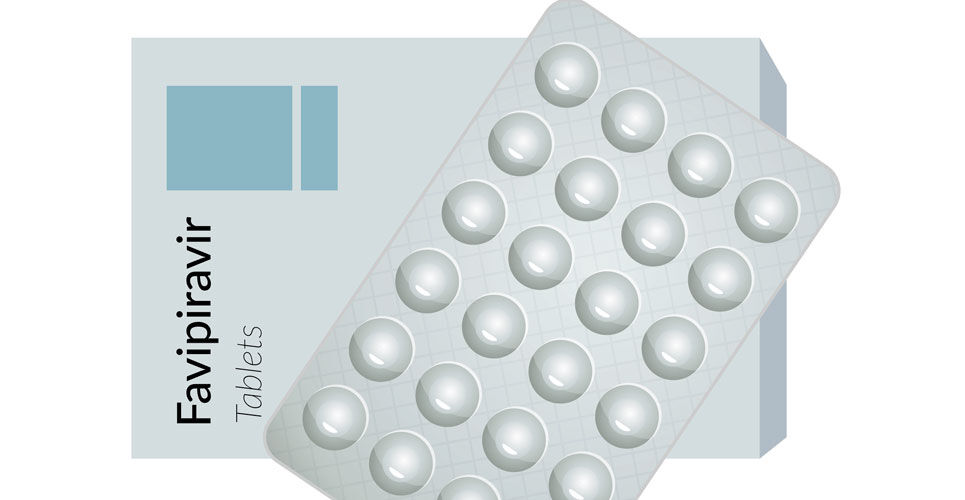Favipiravir decreases the recovery time after infection with COVID-19 among hospitalised patients but only those under 60 years of age
The anti-viral agent favipiravir reduces the time to recovery in hospitalised patients with COVID-19 but only among those under 60 years of age, according to the findings of a randomised, controlled trial by the PIONEER group.
Intravenous remdesivir was the first effective antiviral agent in adults hospitalised with COVID-19 and shown to be superior to placebo in shortening the time to recovery in adults. Moreover, other anti-viral agents such as oral molnupiravir and nirmatrelvir plus ritonavir have all been shown to be effective at reducing COVID-19 disease progression. Favipiravir is another anti-viral agent that selectively and potently inhibits the RNA-dependent RNA polymerase of RNA viruses and has demonstrated in vitro activity against COVID-19. In addition, favipiravir has demonstrated an antiviral effect against COVID-19 in a small animal model study though the authors suggested that clinical studies were needed to assess the efficacy in humans. Consequently, in the present study, researchers conducted an open-label, randomised, phase 3 controlled study of favipiravir plus standard care versus standard care alone.
The PIONEER Trial recruited adults admitted to hospital for suspected or confirmed COVID-19 and then randomised participants 1:1 to receive oral favipiravir (1800 mg twice daily orally on day 1, followed by 800 mg twice daily from day 2 to day 10) and standard care or standard care alone. In the trial, standard care evolved as per local guidelines, with systemic corticosteroids, remdesivir, and tocilizumab used by the clinical teams as necessary. Individuals were followed for 28 days and assessed on a seven category ordinal scale, ranging from 1 (not hospitalised with resumption of normal activities) through to 7 (death). The primary outcome was the time from randomisation to recovery which was censored at 28 days.
Favipiravir and COVID-19 outcomes
A total of 502 patients with a mean age of 58.9 years (61% male) were randomised to favipiravir (251) or standard care alone.
Overall, there was no significant difference between those assigned to favipiravir and standard care, relative to those who received standard care alone in the time to recovery (Hazard ratio, HR = 1.06, 95% CI 0.89 – 1.27, p = 0.52). However, in a post-hoc analysis, it was found that patients younger than 60 years who received favipiravir, showed a faster rate of recovery compared to standard care alone (HR = 1·35, 95% CI 1.06 – 1.72, p = 0.01). Despite this age-related benefit on recovery time, the researchers found that there were no aged-related mortality effects.
There were also no significant between-group difference with respect to serious adverse events (p = 0·87).
The authors concluded that whilst there was no overall benefit from favipiravir, there was a benefit in terms of the time to recovery, in patients younger than 60 years. They added that the indiscriminate use of favipiravir globally should be cautioned and called fir further studies of antiviral agents in COVID-19.
Citation
Shah PL et al. Favipiravir in patients hospitalised with COVID-19 (PIONEER trial): a multicentre, open-label, phase 3, randomised controlled trial of early intervention versus standard care. Lancet Resp Med 2022

